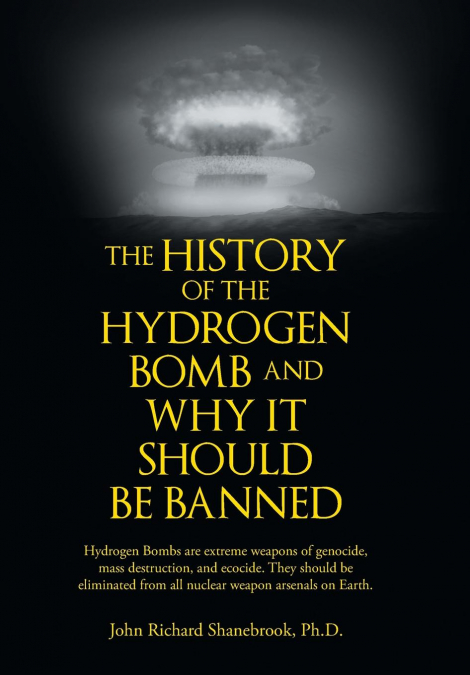
John Richard Shanebrook
One of the first applications of the atomic bomb after Nuclear War I was to serve as the trigger for much more powerful hydrogen bombs. The explosion of an atom bomb emits nuclear radiation, heat energy, and photons. These emissions compress fusion fuel to thermonuclear conditions.From 1945 to 1949, the United States had a monopoly on nuclear weapons until August 29, 1949, when the USSR exploded its first nuclear device. Edward Teller was already actively working on the design of hydrogen bombs, but J. Robert Oppenheimer opposed these efforts. It was President Harry S. Truman who approved the US program to design, build, and test hydrogen bombs.Meanwhile, the USSR had been secretly working on nuclear weapons since 1941, with extensive help from several spies, including Klaus Fuchs. Both the United States and the USSR achieved early success with hydrogen bombs, as was demonstrated by hundreds of test explosions that spread radioactive fallout around the entire Earth.It was the US BRAVO test of a huge hydrogen explosive device on March 1, 1954, that brought matters to a conclusion. The radioactive fallout proved to be lethal over thousands of square miles. The result was an international ban on testing nuclear weapons in the atmosphere (1963).However, the 'Wizards of Armageddon' were busily preparing to fight, and maybe win, future wars fought with hydrogen bombs. These plans included risky maneuvers with live hydrogen bombs on planes, submarines, and other mobile devices. Accidents happened, and many hydrogen bombs were lost, blown apart, or simply abandoned.The absolute worst aspect of hydrogen bomb explosions is global ecocide. The explosions are so powerful they harm the ozone layer and ignite huge fires on Earth that darken the skies. The latter was termed 'nuclear winter' by Carl Sagan. The conclusion of this book is very simple. All hydrogen bombs should be banned, forever